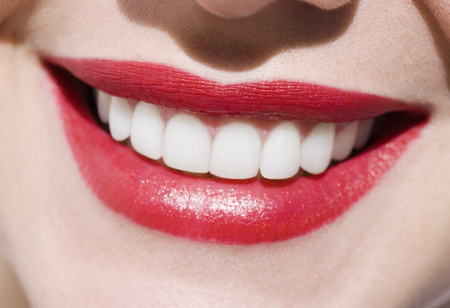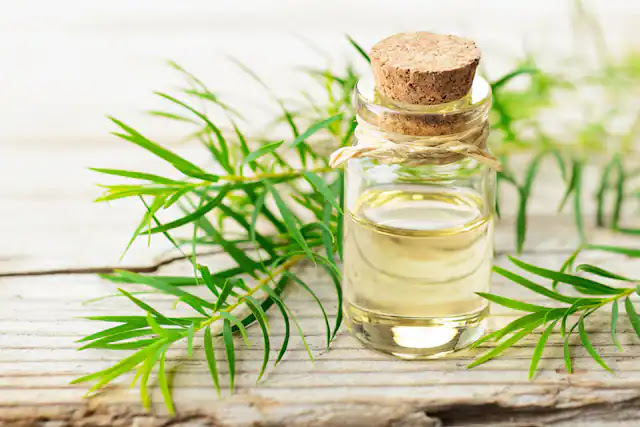Best Products For Receding Gums
If you want to prevent receding gums, it is necessary to use a natural remedy. Several natural remedies can help you regrow your gums. Coconut oil can be used to prevent food particles from clinging to your teeth. Coconut oil also aids in basic oral hygiene. Another helpful natural cure for preserving gums from receding is lemon. Its antibacterial properties are moderate, but it can wear down enamel if applied directly to the gums. You can also purchase lemon oil from a manufacturer.
Overview
You might be asking what you can do if your gums are receding. Although this common condition is not dangerous, ignoring it can lead to tooth decay, bleeding gums, and other problems. The worst-case scenario is losing teeth. If you have receding gums, you should see a dentist discuss your options. There are several treatments available. To start, you may need to have a gum graft.
Getting regular dental checkups is essential in diagnosing receding gums. Because the gum recession occurs gradually, many people don't notice the signs early enough. Symptoms of receding gums include increased sensitivity of teeth, longer teeth, and an incision near the gum line. You should go to your dentist for a thorough examination to see if you have receding gums. Read here natures smile reviews from real users
Some people experience receding gums because they don't brush their teeth properly or use excessive toothpaste. It causes enamel to wear away and leads to gum disease. However, you can prevent the problem by following proper dental care. The best way to reverse it is to visit a dentist as soon as you notice the signs. You may need minor surgery to get your gums back to shape.
Causes of gum recession
You're not alone if you've ever questioned why my gums started receding after repairing them. Inadequate dental hygiene is frequently to blame for the condition. Flossing regularly helps to remove plaque along the gumline and improves blood circulation. Receding gums are frequently caused by periodontitis, a more advanced form of gum disease. This condition, fortunately, can be treated.
Gum recession has a variety of causes. Periodontitis, or gum inflammation, can lead to bone loss and tooth damage. You might have the same problem as a child if you get periodontal disease. Gum recession exposes your teeth's roots, potentially causing them to loosen.
Tooth grinding, smoking, and periodontal disease are the most common causes. Whether you have a hereditary susceptibility to this problem, you should see your dentist regularly. Regular exams will enable you to detect any problems early on and prevent them from worsening. Too harsh brushing wears down the enamel, and poor dental hygiene contributes to tartar formation, which leads to gum disease.
Symptoms Of Receding Gums
Receding gums is a serious problem for oral health, so it is critical to understand the signs of this condition. The condition is often a gradual process. Many patients don't realise that they are suffering from it until they notice red or swollen gums. Other signs may include sores in the mouth or bad breath. Brushing the teeth can become painful or even cause bleeding.
Natural Remedies to Regrow Gums
There are several natural remedies for receding gums. Essential oils can help treat gum disease. Thyme essential oil effectively stimulates the growth of new gum tissue and is also available in tablet and syrup form. Other essential oils that may help treat receding gums include clove, aloe vera, and peppermint. These essential oils are available in varying amounts and can be combined to produce a beneficial blend for your gums.
Oil Pulling
For patients with receding gums, oil pulling is a common at-home treatment. However, the efficacy of these treatments is determined by how they are administered. Oil pulling may aid in maintaining good oral hygiene and the reversal of gum recession. Gum recession can be caused by various factors, including physical wear and inflammation. It's vital to understand the causes and implications of gum recession before attempting any remedies.
While oil pulling has various benefits for receding gums, it is unknown if it can address any underlying disorders. According to a study conducted in Toronto, Canada, patients who underwent oil pulling experienced some positive outcomes. Sjogren's syndrome, which affects the salivary glands, has benefited from oil pulling. As a result of this illness, the mouth may become excessively dry, and the gums may recede.
Oil pulling is an Ayurvedic technique for preserving gum health that has been practised for generations. The procedure employed in this method is scraping the teeth with sesame and coconut oil. The oil has a germicidal effect, which helps the body fight bacteria and keeps cavities at bay. Coconut oil has antimicrobial effects, and it relieves inflammation and bad breath when combined with Himalayan salt. In addition to oil pulling, coconut oil and salt can help fight germs and pollutants while preventing foul breath.
Eucalyptus Essential Oil
Eucalyptus oil has been used to heal receding gums for many years. This oil is anti-inflammatory and, among other things, aids in the formation of new gum tissues. It also has antibacterial, antifungal, and antioxidant properties. As a result, it's a fantastic gum-repair procedure. But how does it work in practice?
In the past, eucalyptus oil was used for various purposes, including healing. The English commonly employed eucalyptus oil to treat bladder infections. The oil may be found in stores and at the market. Some of the brands even come in the shape of toothbrushes. For receding gums, it's a good idea to hunt for a handy version of Eucalyptus oil. Then go with a salt that's light and easy to travel.
Essential Oil Of Thyme
Mouthwashes, toothpaste, and elixirs frequently contain thyme. Its natural compounds aid in preventing tooth decay, gingivitis, and other oral illnesses. Thyme essential oil has antioxidant and anti-inflammatory effects similar to oregano, and it's great for oil pulling.
Coconut Oil
Coconut oil, particularly organic coconut oil, is another natural therapy for receding gums. Put a few drops in a tablespoon of carrier oil and swish it in your mouth for a few minutes, then fifteen to twenty minutes. This approach has been shown to help gums heal and reduce plaque formation. It can also help to protect teeth from bacterial infection. To try it for yourself, purchase a bottle and try it.
Clove Oil
A clove and eucalyptus essential oils blend is another natural cure for receding gums. Clove oil applied to the gums might help relieve pain and swelling. However, before applying the essential oil straight to the skin, dilute it first. When it comes to essential oils, safety should always come first. If you have any doubts regarding the efficacy of these natural therapies, speak with your doctor first.
Tea Tree Oil
If you've observed receding gums, you might be wondering if Tea Tree Oil is healthy for you. While the oil is beneficial in preventing tooth decay, it is ineffective in combating plaque. Because this substance might be dangerous if eaten, it's best to consult with your dentist before taking any products. The following are some of the most often asked questions and their responses. First and foremost, are you really in need of it?
Periodontal disease has also been efficiently treated with tea tree oil. It has also been used to treat thrush, oral herpes, and persistent foul breath. These problems are caused by an overgrowth of germs in the mouth. It is used to cure acne and toothaches and cuts and burns. Because of its numerous benefits, it's simple to see why people choose tea tree oil for gum regrowth.
Peppermint Essential Oil
Peppermint essential oil is more than just a pleasant odour. It prevents plaques from forming in your mouth, leading to serious problems, including gum recession. The essential oil of peppermint is a useful component for preventing gum recession.
Green Tea
Green tea has long been touted as a natural remedy for receding gums, but how does it work? Green tea's anti-inflammatory and antibacterial properties can aid in the treatment of receding gums. It contains catechins, which are potent antioxidants that can aid in the fight against free radicals, which can cause periodontal disease. Anti-inflammatory properties help to reduce gum swelling. Green tea has a lot of antioxidants, which help prevent gum disease and other dental disorders.
It's worth noting that many of us don't get enough of certain minerals that are essential for oral health, which might result in receding gums. If you are deficient in certain nutrients, consult your dentist about taking supplements. Vitamin C, for example, improves blood circulation and keeps gums healthy. By encouraging cell regeneration, coenzyme Q10 can also aid in the growth of receding gums.
Omega-3 Fatty Acids
You may be wondering if Omega-3 Fatty Acids may be used to make receivable gums. It is important to maintain good oral hygiene, but some studies have shown that a proper diet can help improve your gum health. You can find these acids in various sources, including fish, flaxseed oil, and vegetable oils.
Researchers have linked higher levels of omega-3 fatty acids with lower incidences of periodontal disease. Omega-3 fish oil can reduce the risk of periodontitis by twenty percent. In one study, people who consumed one to two fish per week had a lower risk of developing periodontitis. Researchers found that even modest amounts of omega-3 supplements could prevent periodontal disease.
Many studies support the benefits of omega-3 fatty acids, such as DHA and EPA. A 2010 study evaluated the relationship between omega-3 intake and gum disease in nearly 9,200 adults. It found that participants in the middle and upper third of the study group had less gum disease than those who did not consume enough omega-3s. Moreover, they were more likely to be healthy overall.
Gentle Brushing And Flossing
Gently brushing and flossing your teeth is important if you have receding gums. A recession is the natural aging process of the gums. The body's exposure to bacteria and plaque leads to damage. Smoking is also linked to gum receding. People who smoke have twice as much gum recession as those who do not. Treatment varies and may involve gum surgery or regular dental checkups. Brushing your teeth with a soft-bristle toothbrush can be helpful. An electric toothbrush that has a force detector is another option.
Aggressive oral hygiene can also contribute to receding gums. It is important to brush and floss with gentle, circular movements to avoid damaging the gum tissue. Brushing with an abrasive toothbrush will cause more damage to the gums. Gentle brushing and flossing with a soft-bristled toothbrush and flossing with a soft-bridled tooth-flossing tool will help keep your gums healthy.
Peroxide (H2O2)
Although there are numerous advantages to using hydrogen peroxide as a mouth rinse, it can also harm your teeth and gums. You may hurt your gums and create extra harm if you use too much. Use a mouth rinse with a lower hydrogen peroxide content to avoid this. A Listerine and hydrogen peroxide mixture are also safer as an oral rinse.
Using a solution to rinse your mouth of one part hydrogen peroxide to two parts water is one approach to employing hydrogen peroxide for gum regrowth. After using this solution, it should be rinsed thoroughly. Use a water-based solution because larger concentrations can be too harsh for your mouth. If you're concerned about the sting, dilute it with another portion of water.
Several dental specialists advocate mouthwashes containing hydrogen peroxide to whiten your teeth. Only low quantities of hydrogen peroxide are found in commercial mouthwashes. Hydrogen peroxide can also treat minor mouth irritations by releasing oxygen and hydrogen peroxide foams. As a result, an antiseptic is created.
Septilin
A new clinical trial of Septilin for gum regrowth in healthy, chronic periodontitis patients found early evidence that the herbal immunomodulator is helpful. The effectiveness of this medicine, made by the Himalaya Drug Company, compared to regular periodontal care. A total of 40 healthy people with chronic periodontitis participated in the study. After scaling and root planing, it was given as a tablet for two weeks. At day zero, two weeks, three months, and six months, gingival bleeding, serum CRP, and saliva TNF-a levels were all measured.
Septilin, natural herbal medication and mouthwash, may help those with receding gum lines. This oral drug is commonly administered as a syrup or as a tablet. Three times a day, take two pills or two teaspoons. Oral plaque and gum disease can be reduced by flossing using natural products. While Septilin efficiently reduces inflammation, it also comes with several side effects.
The Gel Of Turmeric For Gum Disease
In addition to toothpaste, a mixture of Turmeric and salt can be used to cure bleeding gums. This mixture reduces inflammation and can be used twice a day. It also contains omega-3 fatty acids, which help to strengthen the bond between the gums and the teeth. Turmeric can also be applied to the inflamed gums and then rinsed away. This paste can also be used as a mouthwash, and it can help with gum disease and regrowth.
The experiment was conducted using a limited number of volunteers and two distinct treatments. The two treatments came in gels, and the subjects were assigned to one of them at random. The turmeric gel was given to one group, whereas the chlorhexidine gel was given to the other. The gel was administered twice a day, 30 minutes after brushing. The gels were commercially available and contained 10 mg of C. longa extract. They were designed to be swished about the gums for 30 seconds and not ingested. Turmeric gel showed anti-inflammatory and antioxidant effects, among other things.
Aloe Vera Gel For Receding Gums
Aloe Vera is known to lessen inflammation and have antibacterial and antioxidant effects. Six antiseptic substances are present in the liquid, which control germs and viruses from multiplying. It is a good treatment for gum irritation and receding gums due to these characteristics. It's also a good way to keep your gums healthy without drooling. Aloe vera comes in gel, juice, and tea forms.
The use of aloe vera mouthwash is another way to cure receding gums. Peppermint oil and herbal tea plant oil can be added to the mix. Brush your teeth daily with the mixture, and in only a few weeks, you'll notice a significant difference. Applying aloe vera gel directly to the gum pockets is another way to treat receding gums. It acts as a local anaesthetic, assisting in restoring injured tissues.
Increase Your Water Consumption
One of the most effective strategies to avoid cavities and gum disease is drinking enough water. Simply drinking water throughout the day can help prevent plaque formation and protect your teeth' enamel. Food debris is washed away by water, which stimulates saliva production and helps to avoid plaque accumulation and acid attacks.
The Best Treatment For Gum Recession
Recessive gums can make your teeth look longer than they are. It happens slowly but can lead to serious dental problems, including loose teeth. We'll explore what you can do to stop the gum recession before it worsens.
There are several different treatment methods for receding gums, including traditional surgery and soft tissue grafting. Which method is best depends on the cause and severity of the problem. One method is called the Pinhole Gum Rejuvenation and is a minimally invasive option. This procedure is very effective, but there are risks involved.
Conclusion
There are numerous different treatments available for this problem. It is important to visit your dentist to have your receding gums checked early. Receding gums can cause other problems, including infection and loosening of teeth. If left untreated, it could lead to tooth loss. If not treated, receding gums can cause further damage to your smile and general well-being. There are a number of home remedies that you can try.










Comments
Post a Comment